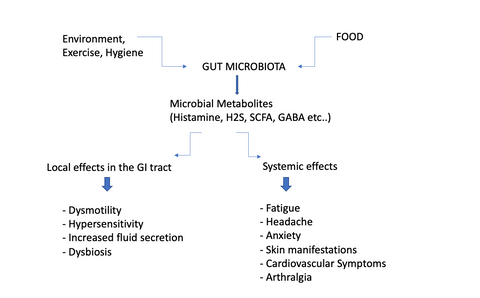Human Microbiota - The Next Big Cure?
Humans carry more bacterial cells than actual human cells. This phenomenon, called the 'Human Microbiota', recognises the 10-100 trillion symbiotic microbial cells harboured by each person. It is a very complex, yet still poorly understood science. Resident microbes are increasingly viewed as an integral part of the skin and other body surfaces, interacting with tissues and immune networks to influence the health and function of not only the local systems, but the total body’s wellbeing in general. They are essential for our survival in many ways, including things like helping us to digest our food.

The composition of gut microbiota is influenced by the use of antibiotics and by the lifestyle of the host, including exercise, diet and hygiene preferences.
The skin immune system is a composite unit of interacting human and microbial elements. The microbiota is a key factor in homeostatic control of skin immunity.
The biodiversity of skin habitats is also heavily influenced by the biodiversity of the ecosystem in which we reside. Damage and loss of natural environments or things such as air and water pollution can all work to reduce the environmental microbial biodiversity, i.e. reduce the human contact with microbes. This leads to systemic immune dysregulation, which results in a higher risk of inflammatory diseases and an impaired immune system.
We know that gut microbiota and the brain communicate with each other via various routes including the immune system, different microbial metabolites, the Vagus nerve and the enteric nervous system. Any disturbance of this amazing brain-gut axis has been thought to be a primary cause of functional gut disorders.
The overall ecosystem comprising various types of bacteria, which can be different in each of us, are not just limited to the gut and skin but are also present in our bladder and other organs. We are just now starting to understand how they contribute to our health and are linked to disease. We are learning ways that we can restructure these various ecosystems to achieve the results that we need individually for our health. The DNA of these bacterium are being studied and science is leading the way to determine how to use the microbiota as potential cures for for things such as allergies and even insomnia.
We still don’t know exactly what all these varieties of microorganisms, fungi, virus and bacteria do in our body and how they interact. It's hard not to hope that the work currently being undertaken to understand them better will open an entire new way of fine tuning the broad spectrum of our health.
Sources:
Prime Journal October 2020
BBC Welcome Science- Podcast
WANT TO TRY BOA? As a thank you for reading our blog, please use code 'BOAACADEMY' for 10% OFF your BOA products.
We are so confident you'll love BOA, all purchases are eligible for our 30-day money-back guarantee.
The BOA Skin Academy Blog hopes to bring you educational, insightful and interesting reading material on the topics of skincare, beauty, rituals, self-care and wellness. All topics are chosen and written by the BOA team, with credits where credit is due. If you have a suggestion for a topic or a question about what we have written, we would love for you to get in touch. Please email us at info@boaskincare.com and we will get back to you as soon as possible.
For all our BOA customers, please leave a review on our website for a discount on your future purchases.
